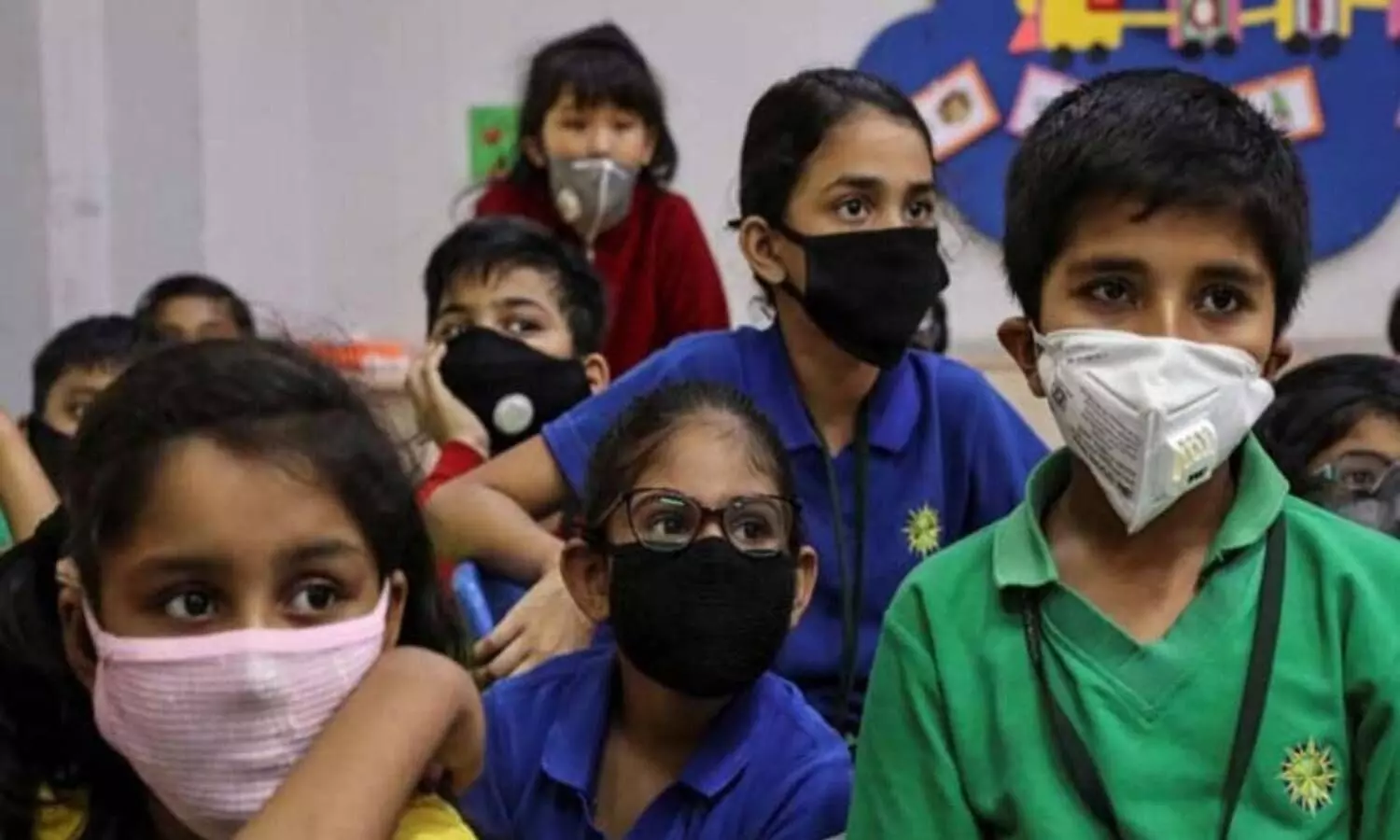No data to show subsequent COVID waves will target children: AIIMS director
Dr Randeep Guleria, director of All India Institute of Medical Sciences (AIIMS) Delhi said that there is no data to show that children will be seriously infected in the subsequent COVID-19 waves
By Newsmeter Network
New Delhi: Dr Randeep Guleria, director of All India Institute of Medical Sciences (AIIMS) Delhi said that there is no data to show that children will be seriously infected in the subsequent COVID-19 waves
"It is misinformation that subsequent waves of COVID-19 pandemic are going to cause severe illness in children. There is no data - either from India or globally - to show that children will be seriously infected in subsequent waves," he said during a media briefing on COVID-19 on Tuesday.
Dr Guleria cited that 60 per cent to 70 per cent of the children who got infected and got admitted in hospitals during the second wave in India either had comorbidities or a weak immunity; healthy children recovered with mild illness without the need for hospitalisation.
COVID appropriate behaviour key to preventing future waves
The director of AIIMS explained why waves occur in a pandemic. Pandemics caused by respiratory viruses usually occur in waves. This was seen in the 1918 Spanish Flu and the H1N1 (swine) flu, said Dr Guleria. "The second wave of the 1918 Spanish Flu was the biggest after which there was a smaller third wave." He explained that SARS-Cov-2 is a respiratory virus.
Multiple waves occur in susceptible parts of population
When a large part of the population acquires immunity against the infection, the virus becomes endemic and the infection becomes seasonal – like that of H1N1 that commonly spreads during monsoon or winter. The spread and the waves can be more infectious depending on the variants that the virus produces.
Human behaviour can also contribute to spread of waves. Dr Guleria said, "Whenever cases increase, fear makes people change their behaviour. People strictly follow COVID-19 appropriate behaviour and non-pharmaceutical interventions help break the chain of transmission. But during relaxation of the lockdown, people tend to let go off COVID-19 protocol. Due to this, the virus again starts spreading in the community, leading to another wave."
The AIIMS director said that if we have to stop subsequent waves, we need to aggressively follow COVID-19 appropriate behaviour until we can say that a significant amount of the population is vaccinated or has acquired natural immunity. "When enough people are vaccinated or when we acquire natural immunity against the infection these waves will stop. The only way out is to strictly follow COVID-19 appropriate behaviour."